#kind terminator
Explore tagged Tumblr posts
Text

How to be a Good Firer (aka a Kind Terminator)
Master the art of kind terminations. Our guide offers essential tips on how to be a good firer while maintaining respect and dignity for all involved.
0 notes
Text

trying to figure out a character design for a comic I want to do at some point, a queer horror adaptation of the monster of lake lametrie
#it's going to be a kind of uncomfortable horror about a queer couple in the late 80s struggling with a terminal illness#the sea monster element shows up halfway through#my art
2K notes
·
View notes
Text

BEWARE MY PIPELINE! 🏳️⚧️
#i felt a sharp pang of butch joy the other night#i've been feeling it a lot. i think i've got a terminal case#thinking about how that's the kind of#queer solidity and queer warmth and dumb blunt queer hope that i want to be able to share w the folks around me#it's what i want for my friends and for myself. forever. i'll fight for that#nature held me close. and you damn well best believe she's got no fault with this one#ANTLERSPAWN#SONA#ME.
770 notes
·
View notes
Text

so i just got this super cool tron figure that i didnt knew existed and its now my favorite thing i own :D
#EKKOdraws#my art#so for the last month i had been with a huge urge to get a new transformer for the collection and i was looking for where i could get one#and in the search for it i came across this like inmense toy store that had those cool 2000s toys#and there i was in the transformers ille going throuh some TFDOTM stuff with my aunt and she wanders off for a moment#so i start looking for her and i find her in the hot toys part talking with a guy from the store explaning her about the brands and stuff#so i start cheking what she is seeing and theres the avengers and terminator and jeff bridges#JEFF BRIDGES???!!!#and there he was a life like replica of jeff as kevin flynn and im like really happy to se some TRON#and then i look to the side and my heart literaly stopped like i really had to double check that what i was seeing was real#there was a whole shelf of tron stuff like the dimond selects and the legacy bikes and guards and quorra and im so so happy#like OMG WHAT AM I GOING TO BUY NOW??? i was going to get the dimond select tron but then i realized there was a VHS case#and im like what#whats a VHS doing here so i asked the guy and he said it was some kind of exclusive but he didnt knew which one#so im like yeah im getting whatever is in that box#and what was is that box was a very shiny colorful tron#so im happy#and i did get the new transformer#sorry i had to write it somewhere im really happy#tron#tron uprising#tron legacy#tron 1982#tronblr#yori fanart
277 notes
·
View notes
Text

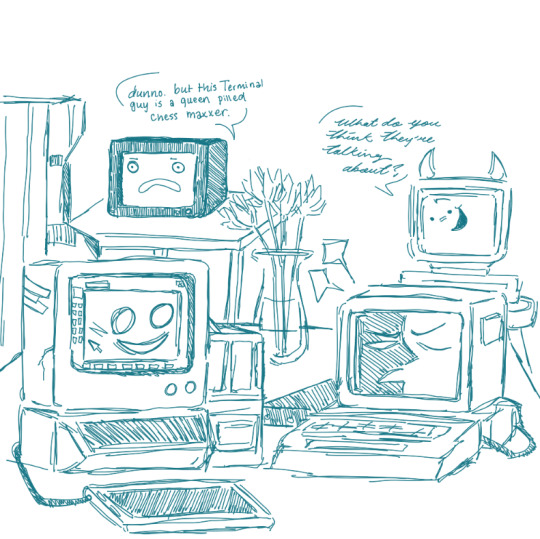

Heh... hey guys...... BOOOO OOGLY BOOGLY SCREENS SCREEEEEEEEEEENS
OOOOO
#sebastian solace#sebastian pressure#painter pressure#roblox pressure#pressure fanart#scp 079#edgar electric dreams#scag regretevator#terminal ultrakill#robo bitch#guys how do i even tag this#anyways don't come after me for the#sebastian x painter#art I swear it was a joke at first but now it's kind of cute#What other tags did i forget uhhhh#regretevator#ultrakill#scp foundation#electric dreams#fanart for the soul#twitter didn't like this
450 notes
·
View notes
Text

fuck everything else i just drew him with semi-consistent features also this is the immediate aftermath of the last sketch i posted
#do i draw anything else except him? no. is it terminal? yes#also quick note to everyone that leaves comments in the tags or replies to my posts I read it all and you make me so extraordinarily happy#toshiro nakamoto#shuro dungeon meshi#dungeon meshi#delicious in dungeon#like i cannot overstate how much i like reading the comments and while i really enjoy drawing by itself the dialog i get to have with peopl#through the drawings is very very fun and motivating#tw / blood#ok now that i look at this he did get a completely different sword and an undershirt#im not built for any kind of carefulness
743 notes
·
View notes
Text
anyone here heard of the flipper zero

i love this thang, it's a little pentester/hacking tool but it looks like one of those cheap petsim games from the 00's
I just love the little guy in it. I could be coerced to break into secure buildings if this guy told me to
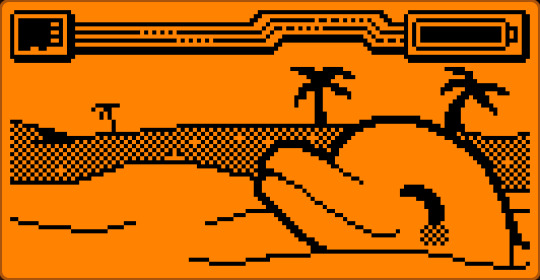
#it's also kind of bnycore....#i watched a video on it and i've literally didn't even know devices like these were a thing#terminal talks
1K notes
·
View notes
Text

PATRICIA ANN LUPONE GET MEDIA TRAINING NEOW
#jesus christ she’s got terminal foot in mouth disease huh#like girl all you had to do was acknowledge the harmful way your statements could be interpreted given the charged context#do i believe she personally is a racist? no. do i believe the rhetoric she’s used is unintentionally microaggressive? yes.#these two ideas can coexist without verging into problematic and potentially dangerous overgeneralizations#but also what the fuck do you MEAN she’s now making veiled terroristic threats#i fear she’s lost too much public sympathy from both sides of the aisle atp#idk man i can’t elucidate a definitive take on all this. kind of just watching it implode deer-in-headlights style#patti lupone
61 notes
·
View notes
Text
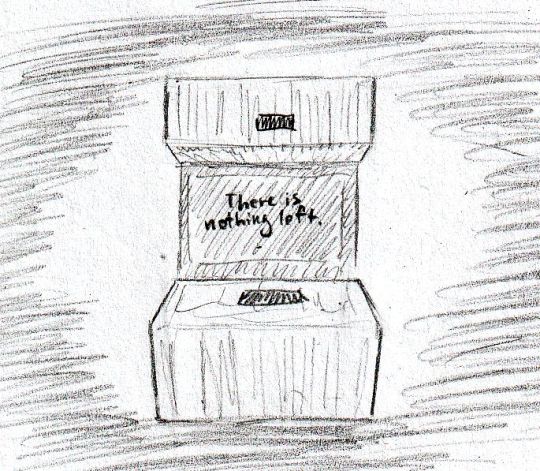
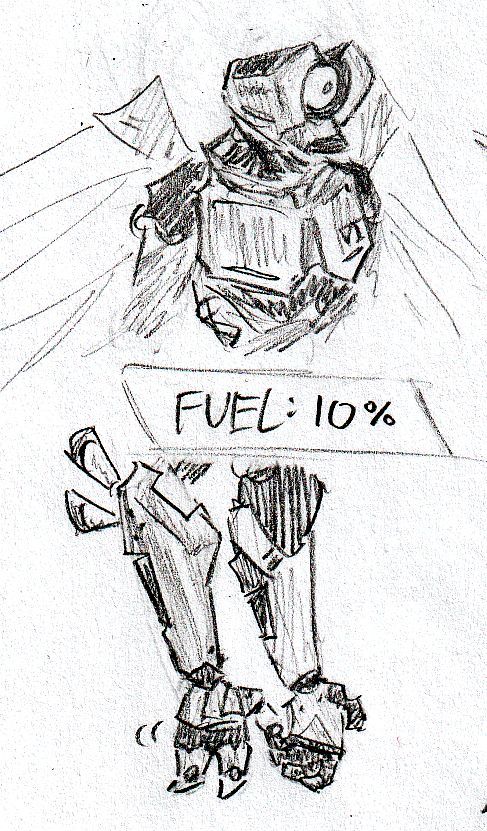
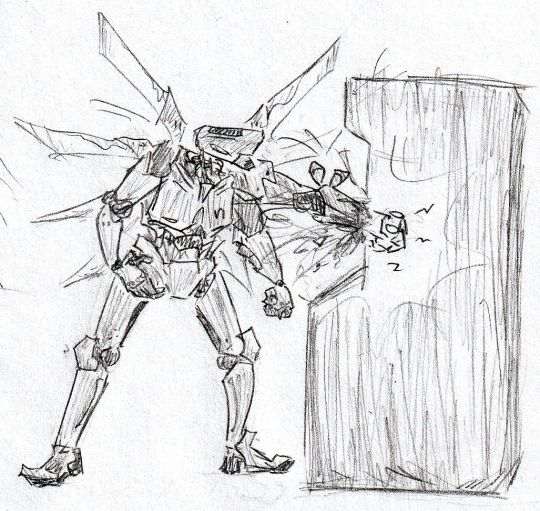
been having this thought
#ultrakill#v1#terminal#kaart tag#they're some kind of machine too#maybe if you destroy them you provoke hell into being more hostile to you too#you're on your own now#pencil
659 notes
·
View notes
Text
Obsessed with this nightmare Fujo phrenology post I saw it's so funny. I can't lie I think some of you guys are just bad at writing

#what does this even mean#is this some kind of special terminally online ability i kind of want it#going into my next dm watchthrough playing close attention to if experience is trying to fujobait for power bottom or top mashita
85 notes
·
View notes
Text

#fellas is it gay to gaze into the eyes of your bro as if they are the only thing that matters in the world??#yuta is terminally in love with a powerful twink wizard#toge is smitten with the hard working innkeeper with broad shoulders#yuta is literally his kind of man#yuta on the failwife to housewife pipeline#wizard!toge#innkeeper!yuta#magical caffee au#inuokko#ottoge#toge x yuuta#inumaki toge#okkotsu yuuta#jujutsu kaisen
351 notes
·
View notes
Text
Ok a line has been crossed and I am not ok with it on any level. Trolling is never ever ok.
After one of them made a comment on my correctly tagged post (now blocked and reported) they have clearly made a post about it with my url @‘d and as a result I have just had my inbox spammed by over 30 (and climbing) bt stans on anon telling me my url is offensive and they they hope I and Eddie get stage 4 terminal cancer so my url will actually be a relevant reference to something.
The originator was clearly looking to cause trouble by coming into the anti tags after the episode.
I am fully aware the people who actually need to see this won’t but saying that to anyone regardless of ship or fandom or anything is seriously hideous behaviour and it’s not ok.
It makes it very clear they are new to the 911 fandom and have never seen any bts stuff pre s7 especially related to Eddie. For those who don’t know stage four Eddie diaz is a reference to a post Ryan made about Eddie’s new haircut and job going into 5b (Eddie’s breakdown era).
Regardless of that that is an awful thing to wish on a character on a show. That is wishing death on them.
But the biggest and most problematic part of it all is the wishing terminal cancer or any stage of cancer for that matter on someone - a real life human being who opens up their inbox and sees those messages.
A real life human being who may be affected by cancer in their real not online life. A real person who might be enjoying an escape from the reality of cancer and cancer treatment through fandom.
I don’t have cancer but I did loose my mother to cancer when I was 18. It’s not something I would wish on my worst enemy.
The entire thing has left me feeling upset. Fandom is supposed to be a safe and enjoyable space if you cannot respect other peoples opinions and ships then maybe don’t engage with fandom.
They won’t win - I’m made of stronger stuff then that but I cannot let it go without saying anything more widely because who knows what others are getting in their inboxes that might have an impact on their mental health and well-being.
#sorry for the rant but I have to say something#feel free to reblog to spread it more widely if that’s something you want to do but don’t feel obliged to#please just remember to treat others with respect and kindness#this has been an issue in this fandom for a while but it has become far more widespread since Tommy appeared and much more vitriolic#you want to ship Buck Tommy then have at it but respect#my choice not to and respect that I ship buddie#I’ve been in this fandom too long (since mid s2) and so many others before and I’ve seen it all but this is not ok#911 abc#tw cancer#tw terminal cancer#tw death threats
107 notes
·
View notes
Text

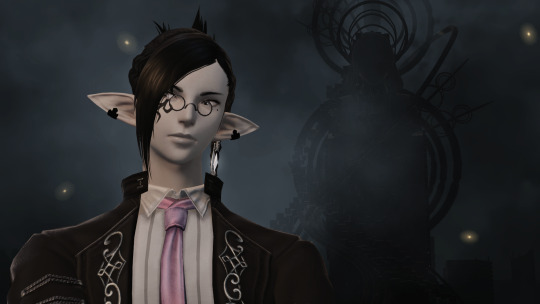
Junelezen Day 23 - Dark
[Upon shutting down the terminal, it will not be possible to restore the town to its present form] [Are you certain you wish to shut down the terminal?] [Y/N]
#ffxiv#junelezen#junelezen 2025#nivienne grovant#dawntrail spoilers#this was legitimately one of my favourite things in the expansion I think#forcing you to actually turn off the terminals and take the zone from this vibrant place into something empty and haunted#I know it is kind of “ultima thule but backwards”#but you need to understand how much “ultima thule but backwards” is a wildly interesting thing to do ESPECIALLY IN AN MMO#anyway Living Memory rules and I'm glad you can cheese it and use NG+ to get screenshots if you need them
20 notes
·
View notes
Text


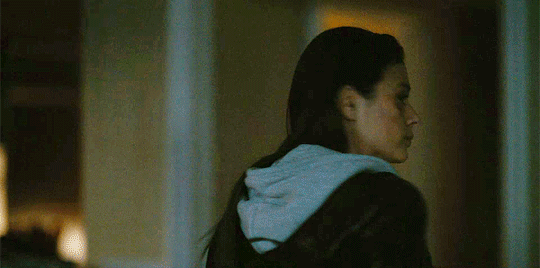
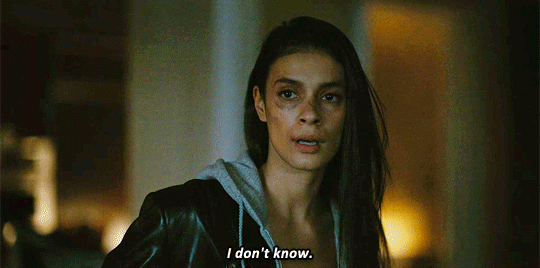
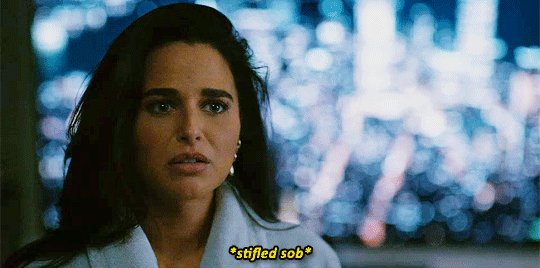
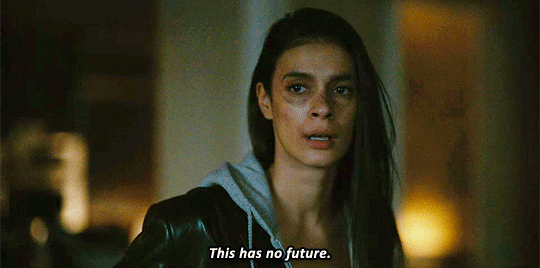
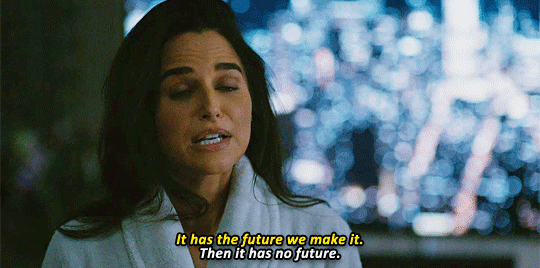
Special Ops: Lioness - 1x07
#specialopslionessedit#special ops lioness#special ops: lioness#aaliyah amrohi#cruz manuelos#stephanie nur#laysla de oliveira#special ops lioness 1x07#special ops lioness spoilers#aaliyah x cruz#femslash related stuff#muslim lgbt#cruz acting all tough before breaking down because she's in love#:(#it it kind of delicious#though truly what did aaliyah think was gonna happen#that they'd get several days of this before it was finished forever instead of one night#also filing away another terminator reference >_>
507 notes
·
View notes
Text
Is RavenPaw the only warriors character to have died from cancer
#blimbo rambles#wc#I kind of do a double take when I remember he died from fucking liver cancer#every warriors character either dies in battle or offscreen or from green cough#What the fuck do you mean Raven had a terminal illness
23 notes
·
View notes
Text
The Murderbot Diaries and Terminator: Dark Fate: What Does a Killer Robot WANT, Anyway?
The Terminator (1984) is probably the most famous killer robot in media, setting the image for a what a killer robot is. It’s shaped like a bodybuilder, weapons built into its metal skeleton, eyes hidden behind cool and impersonal sunglasses, a threateningly “foreign” accent, and no feelings, no remorse, and no desires besides killing its target. Kyle Reese describes it to Sarah Connor bluntly: “That Terminator is out there! It can't be bargained with. It can't be reasoned with. It doesn't feel pity, or remorse, or fear. And it absolutely will not stop... ever, until you are dead!�� And the film supports this wholeheartedly. We get a few scenes from the Terminator’s perspective, and they do not really indicate that it has much in the way of personality or free will. It’s scary because it is a ruthlessly efficient, tireless, and analytical machine built to kill. It will not stop until its target is dead, or it is.
Terminator 2: Judgement Day (1991) gives us a nice Terminator, a Terminator captured from its controlling Skynet and re-programmed to help Sarah and John Connor rather than hunt them. This Terminator gives slightly more suggestions that it has a personality of its own, but ultimately it is still now ruthlessly efficient, tireless, and analytical in protecting its charges, but it still dies at the end in the course of fulfilling its objective. It was, after all, programmed by the human rebels to protect John Connor, and it did.
Did the Terminator want any of that? The second film halfheartedly cares a little, and the first film certainly did not at all. It’s an irrelevant question. It’s a robot; it’s incapable of truly wanting anything, it just does as it’s programmed. It fulfills its objective.
In modern sci-fi, that’s not really a satisfying answer anymore. It looks like a human, has human organic parts built into it, and it clearly has the ability to process large amounts of information and make complex and reasoned decisions. Why do we write it off so thoroughly? Does a Terminator like what it does? Would it choose this? What does a Terminator want?
The Murderbot Diaries (2017-present) by Martha Wells isn’t a direct answer to this question, but it sure is considering it.
The titular Murderbot is very similar to the Terminator: a human-form cyborg, a robot with human organic parts built in, a machine with guns in its arms made to do a job and that job being to protect and/or oppress humans. But as a thinking, feeling, complex entity, it has opinions about that job.
You know what else is a clear response to early Terminator movies’ fundamental uninterest in the Terminator’s inner life and personal opinions on things? Later Terminator movies. Specifically Terminator: Dark Fate (2019).
The fact that The Murderbot Diaries and Dark Fate came out at roughly the same time, in the same sci-fi AI-story zeitgeist, looking back critically at the 80’s and early 90’s Terminator and asking, well, what would it do if it didn’t have to murder, who would it be if it had the choice, is telling.
The Murderbot Diaries stars Murderbot, a SecurityUnit owned by a callously greedy and corner-cutting company that uses such SecUnits ostensibly to protect but in reality to intimidate, control, and surveil human clients. It calls itself “Murderbot” and all SecUnits as a whole “murderbots” for a reason. The world of the books sees SecUnits as mindless killer robots kept in check by their programming, in a very similar way that the Terminator was presented in 1984. We see the story from Murderbot’s point of view: it’s snarky, depressed, anxious, bitter, funny, and very opinionated. It also really, really hates intimidating, controlling, and surveilling people, and it specifically broke its own programming meant to keep it compliant so it wouldn’t have to hurt people. Instead, it wants to half-ass its job and watch soap operas… but it’s sympathetic to humans in danger despite itself, and when it chooses humans it cares about, it will go to great lengths (ruthless, but very tired and full of fear and pity) to protect them. What does it want? To be given space; to not be given orders; to have the ability to take its time and watch its shows and determine what its job as Security means to it.
Terminator: Dark Fate takes a different tack. (It’s actually about three badass women and I’m very sorry for focusing on the man-like character here BUT) Dark Fate presents an alternate timeline off the main series, where the Terminator succeeded in killing young John Connor. Previously, we had seen Terminators that would not stop until they were dead; this one fulfills Reese’s other warning. It will not stop until John Connor is dead. Well…. it succeeded. John Connor is dead.
Now what?
In the opening scene, we see this from his mother Sarah Connor’s perspective. The Terminator appears out of time, ambushes and kills young John Connor, and then stands there looking impassively at the destruction it wrought while Sarah screams.
It looks cold and satisfied when that scene is first presented. But when we see it again from the Terminator’s perspective, it seems to just stand there, staring stupidly, suddenly with no direction in life. It fulfilled its objective. It followed its programming. Now it has no more objective, can receive no more orders, and its programming has nothing more to tell it to do. It eventually disappears into the woods, learns more about humanity, grows a conscience, lives in a little cabin with a woman and her son fleeing an abusive husband in an apparently mutually very supportive relationship, chops wood, drives a truck, and gives Sarah Connor insider information to allow her to track down other incoming Terminators as a way of atonement. It does have remorse, if given time to think for itself and realize it. It doesn’t really want to hurt people, and even, similar to Murderbot, has a drive to use its strength and intimidating-ness to protect the people it chooses. It mostly wants to be quietly and safely left alone.
Both the Terminator and Murderbot are killer robots left adrift, aimless, reeling, suddenly having to decide for themselves what to do with their lives for the first time. Both are stories that circle back to the original Terminator premise and say, okay, but that killer robot isn’t killing for the sheer thrill of it, it was forced into doing that by a top-down authority in control of its programming. That would kind of fuck someone up, actually. It’s a hopeful narrative: these things are people, and they don’t want to be hurting other people. When given the option, they just want to rest, make amends, understand the truth, find a place they belong, and see the people they care about safe. And I think it’s fascinating that not only is smaller, literary sci-fi asking this question and telling this story, but so is the Terminator franchise itself.
We also just as blatantly see the evolution of Sarah Connor as a character. In The Terminator (1984) the Terminator is sent to kill Sarah Connor. When I was watching it recently with some friends who had never seen it before, they guessed—almost correctly—“oh, it’s because she’s the rebel leader in the future!” Sorry guys, this is a 1980s mainstream sci-fi blockbuster. Her as-yet unborn son is going to be the rebel leader. That’s why the robots in the future need to kill her, before she gives birth to the hero of the humans. Blech, I know.
Over the course of the movie, though, she becomes tough, fierce, and brave, the type who can and will survive the apocalypse; in future movies and tv series (like The Sarah Connor Chronicles, 2008, where she gets to be the eponymous title character this time!), she gets to be a strong leader in her own right. This is particularly true in Terminator: Dark Fate, where Sarah Connor is a tough, grizzled, middle-aged Terminator-fighter, who steals heavy weaponry from the government to track down and kill Terminators arriving from the future. She becomes a mentor to the new woman being hunted down by the new Terminator threat, Dani Ramos. This time, though, Dani isn’t fated to be the mother of the human rebel leader—she is destined to become the human rebel leader herself. Along with Dani’s own Kyle Reese figure, a cybernetically-augmented human fighter from the future named Grace, women get central action-hero and rebel-leader roles in Terminator: Dark Fate, feeling like an awkward apology for the sexism inherent in the premise of 1984’s The Terminator. (However, Dark Fate stops short of committing to the Dani-Sarah/Grace-Reese parallel and letting them be lesbians. It’s still a mainstream action movie, I guess.) We even see the development of a curt but resentfully respectful understanding between Sarah Connor and the Terminator that killed her son.
I lay this out because in the same way I see the literary DNA of the Terminator in Murderbot, I see elements of Sarah Connor in Dr. Mensah. She’s the human protagonist—the one who would be the protagonist if All Systems Red had been from the human perspective—and feels like the answer to a similar question to “what does a killer robot want?”, namely, “what if, instead of enemies locked into battle to the death, the badass human and the killer robot worked together and came to an understanding? What if they could be friends instead of enemies?” Mensah also feels like a feminist response to some of the issues I had with Sarah Connor—that she didn’t get to be the leader herself, that despite her own strength and tenacity being the mother to the leader was the most important thing she would do—and responds to them in a similar way that Dark Fate somewhat apologetically does. Mensah is the leader of her society (her planet). Mensah is a mother and she is a scientist and a leader and gets her badass action-hero moments (MINING DRILL). She is the first to reach out to Murderbot. To ask it how it feels, and calm down the others later when they’re afraid; her relationship with Murderbot is unique. She’s a foil to Murderbot in a parallel but opposite way that Sarah Connor is a foil to the Terminator. And while in Dark Fate they are not friends (the Terminator did still kill Sarah’s son, even if it didn’t specifically want to) we see the same kind of desire reflected: what if they were at least allies? What if they were working together? How would that relationship go? What kind of understanding could they come to, about what it means to be human and to be machine? It's a smaller part of the movie and they don't give a whole lot of answers, but it's there.
Both All Systems Red (and the subsequent Murderbot Diaries books) and Terminator: Dark Fate were released in a very different sci-fi zeitgeist than The Terminator was. They’re both looking back, and reacting to it: Dark Fate directly, The Murderbot Diaries indirectly. And they’re approaching the concept of the Terminator and its Sarah Connor figure with similar questions: What does the robot want, aside from its programming to kill, and if it could be freed of its programming to kill, what kind of relationships—with society, with the concept of self-determination, and with its human woman foil—could it potentially be able to develop, with that freedom?
#They’re also both aroace#is it regressive? Does it imply things about sex/romance and humanity?#I don’t care I appreciate that neither one had to prove itself a whole person by falling in love#that’s a topic for a different post#Dani and Grace didn’t get a romance either. Cowards#but I kind of appreciate there was no human romance and sex/inhuman lack of romance and sex that was sorta lowkey going on in the original#This piece is less polished than last week's but oh well#MurderMetaMay#The Terminator#Terminator Dark Fate#The Murderbot Diaries#meta#my meta#my writing
144 notes
·
View notes